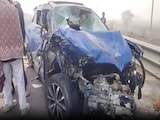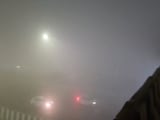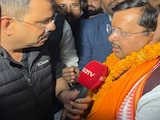- "Don't get misled": FAQ on Citizenship Act, National Register of Citizens
- "Fact-sheet" clarifies NRC is separate from CAA
- Amit Shah had said in parliament there is no link between the two
Amid nationwide protests against the Citizenship law and the centre's plans for a National Register of Citizens (NRC), sources in the government put out a list of FAQs on Thursday in an attempt to clear the air on the controversial measures. "Do not get misled, do not fall victim to misinformation," warns the fact-sheet, tackling 13 questions including whether Indian Muslims need to worry about "CAA+NRC".
The unsigned document, ascribed to government sources, was released on a day there were protests and marches across India against the citizenship law and NRC - in defiance of Section 144 or a ban on large gatherings in some cities - and internet was shut down, even in parts of Delhi.
The "fact-sheet" begins by clarifying that the NRC is separate from the CAA or Citizenship (Amendment) Act.
It was Home Minister Amit Shah's comments at an election rally that raised concerns that the two measures would be used as instruments to target Muslims. "The CAB (Citizenship Amendment Bill) will come, all refugees will be given citizenship, and after that a National Register of Citizens will be formed. Refugees need not worry. Infiltrators will have to worry. Understand the chronology -- first CAB, then NRC, and NRC is not just for West Bengal but for the full country," Amit Shah had said while campaigning in West Bengal for the April-May national election.
The Home Minister has since declared in parliament that there is no link between the two.
It was Home Minister Amit Shah's comments at an election rally that raised concerns that the two measures would be used as instruments to target Muslims
The first question in the FAQs is whether NRC is a part of the citizenship law. "No, CAA is a separate law and NRC is a separate process. The CAA has come into force nationwide after its passage from parliament, while the NRC rules and procedures for the country are yet to be decided," the answer reads.
Do Indian Muslims need to worry about CAA+NRC? "There is no need for an Indian citizen of any religion to worry about CAA or NRC," is the reply.
In NRC "will we be asked to present proofs of us being Indian?"
The reply: First of all, it is important to know that at the national level, no announcement has been made to begin NRC process. If it is implemented, it does not mean that anyone will be asked for proof of being Indian. NRC is merely a normal process to register your name in the citizen's register. Just like we present our identity cards or any other document for registering our names in the voter list or getting Aadhaar card made, similar documents shall need to be provided for NRC, as and when it is carried out.
What has been noted with interest in the answer is the phrasing - "if it is implemented" and "as and when it is carried out" - which hints at an element of pause amid fierce protests in the country.
On details required to prove citizenship, the FAQs state that acceptable documents will likely include Aadhaar, passports, voter cards etc, but is "likely to include more documents so that no Indian citizen has to suffer unnecessarily".
The document also offers this clarification: "When the NRC is announced at the national level, the rules and instructions will be made for it in such a way that no one will face any trouble. The government has no intention of harassing its citizens or putting them in trouble!"
The citizenship law enables non-Muslims from Pakistan, Bangladesh and Afghanistan to become Indian citizens. Critics say the citizenship exercise NRC will drive out mostly Muslims as the others would have citizenship under the new law.
In Assam, the NRC released in August became controversial as 19 lakh people were left out of the new citizens' list with March 24, 1971, as the cut-off date based on the 1985 Assam Accord. The ruling BJP faced resentment within the ranks when many excluded from the list turned out to be Hindus.















